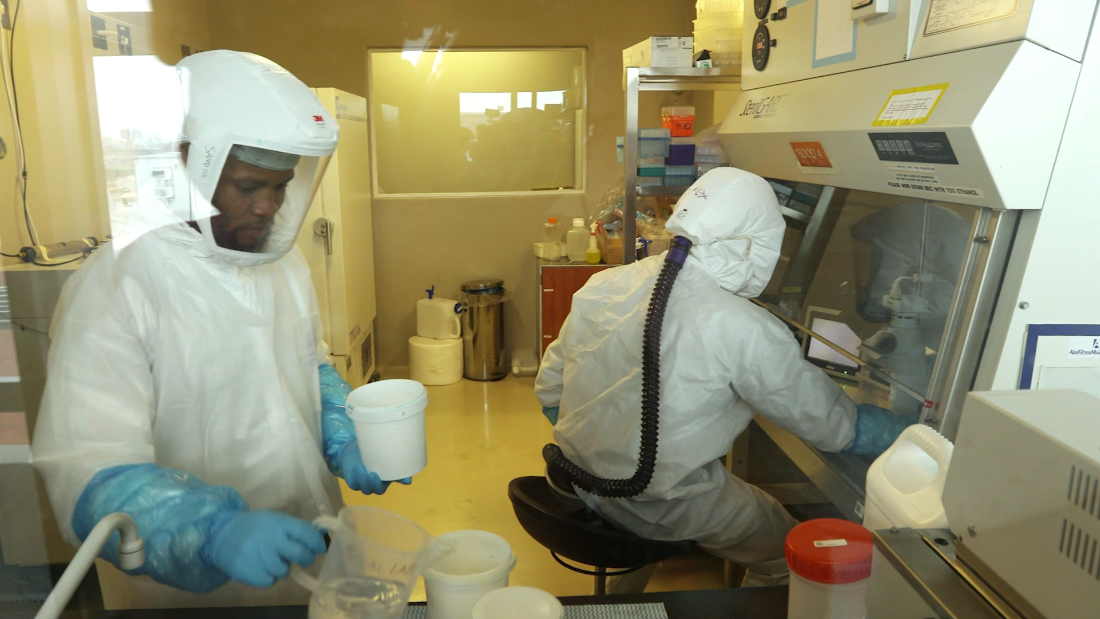The variant was first detected in South Africa in October and has now been found in more than a dozen countries.
“I think we should be alarmed,” said Penny Moore, associate professor at South Africa’s National Institute of Communicable Diseases and senior author of the study.
“Based on Penny’s data, the vaccine is likely to be a little less effective, but we don’t know how much less effective,” said David Montefiori, a virologist at Duke University Medical Center.
Montefiori added that this is the first study that gives him serious doubts about whether a previous infection or a vaccine will protect against a new variant of the coronavirus.
“This is the first time that I am concerned with a variant that partially avoids the immune response and partially avoids the vaccine,” he said.
Both experts emphasized that people should still get the vaccine. It is extremely effective against other forms of the virus and they think it will probably still provide some level of protection against the new variant.
The study was posted on a prepress server and was not peer-reviewed and published in a medical journal.
This is one of the first reports to examine the effect of the variant on the potency of the antibody. Laboratories around the world are furiously studying the problem and hope to report the results in the coming weeks.
“I am desperately concerned that in the next six to 12 weeks we will see a situation with this pandemic unlike anything we have seen so far. And this is really a challenge that I think most people have not yet realized,” Michael Osterholm, an epidemiologist at the University of Minnesota and member of President-elect Joe Biden’s Covid-19 Transitional Advisory Council, told CNN’s New Day.
‘A two-arm escape from the immune system’
In the study, Moore and colleagues collected blood from 44 people who had Covid-19. Almost all cases were confirmed to have occurred before September, that is, before the variant was detected in South Africa.
The researchers then checked whether their antibodies would fight the new variant.
For about half of the 44 people, their antibodies were powerless against the new variant.
“We saw a knockout,” said Moore. “It was a scary result.”
For the other half, the antibody response was weakened, but not entirely eliminated.
The analysis showed that the strongest antibody response came from those who suffered more severe cases of Covid-19 and therefore developed a stronger antibody response after their illnesses.
The culprits were mutations in two different parts of the tips at the top of the coronavirus. Vaccines work towards these peaks.
“It was a two-arm escape from the immune system,” said Moore.
Moore emphasized that these are laboratory results, and studies need to be done to see if people who have had Covid-19 have been reinfected with the new variant.
The antibody tests did not measure other immune responses, such as T cell responses, which are generated by previous infections and vaccines.
What does this mean for the vaccine
Moore’s team is now collecting blood from people who have been vaccinated to see if their antibodies can fight the new variant.
“I think the data on people with a previous infection raises all kinds of alerts for vaccines,” she said. “We have to test to find out.”
Montefiori, the duke’s virologist, agrees.
“I have no reason to think that the results with people who have been vaccinated will be different than with people who have had a previous infection,” he said.
For several reasons, Montefiori thinks the vaccine is likely to have an effect – but probably not a great success.
t
First, the two vaccines authorized for use in the United States work very well, so even if the new variant works, the reduction in vaccine effectiveness is unlikely to be devastating.
“We have to remember, the Pfizer and Moderna vaccines are 95% effective – this is an extraordinary level of effectiveness,” said Montefiori. “If it drops to 90, 80, 70% effectiveness, it’s still very, very good and is likely to have a big impact on the pandemic.”
In addition, while surveillance in South Africa shows that the new variant is becoming the dominant variant in the country, Montefiori points out that it was found only in small numbers in 13 other countries.
In addition, vaccination can trigger a stronger antibody response than infection.
On Monday, researchers at the Sheba Medical Center in Israel announced that a blood test of 102 hospital employees who received two doses of the Pfizer vaccine showed that their average antibody levels were higher than those found in people who recovered from Serious Covid-19. This study has not been peer-reviewed, published or posted online.
“This is very good news,” said Moore.
While scientists find out what effect the variant may have on the vaccine, experts advise that prevention, such as wearing a mask and social detachment, is the best way to reduce Covid-19 rates – that and get a vaccine when possible.
